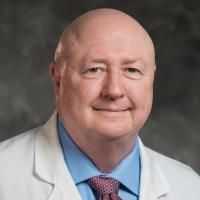Cerebrospinal Fluid Proteome Changes in Older Non-Cardiac Surgical Patients with Postoperative Cognitive Dysfunction.
Date
2021-02-26
Journal Title
Journal ISSN
Volume Title
Repository Usage Stats
views
downloads
Citation Stats
Attention Stats
Abstract
Background
Postoperative cognitive dysfunction (POCD), a syndrome of cognitive deficits occurring 1-12 months after surgery primarily in older patients, is associated with poor postoperative outcomes. POCD is hypothesized to result from neuroinflammation; however, the pathways involved remain unclear. Unbiased proteomic analyses have been used to identify neuroinflammatory pathways in multiple neurologic diseases and syndromes but have not yet been applied to POCD.Objective
To utilize unbiased mass spectrometry-based proteomics to identify potential neuroinflammatory pathways underlying POCD.Methods
Unbiased LC-MS/MS proteomics was performed on immunodepleted cerebrospinal fluid (CSF) samples obtained before, 24 hours after, and 6 weeks after major non-cardiac surgery in older adults who did (n = 8) or did not develop POCD (n = 6). Linear mixed models were used to select peptides and proteins with intensity differences for pathway analysis.Results
Mass spectrometry quantified 8,258 peptides from 1,222 proteins in > 50%of patient samples at all three time points. Twelve peptides from 11 proteins showed differences in expression over time between patients with versus withoutPOCD (q < 0.05), including proteins previously implicated in neurodegenerative disease pathophysiology. Additionally, 283 peptides from 182 proteins were identified with trend-level differences (q < 0.25) in expression over time between these groups. Among these, pathway analysis revealed that 50 were from 17 proteins mapping to complement and coagulation pathways (q = 2.44 *10-13).Conclusion
These data demonstrate the feasibility of performing unbiased mass spectrometry on perioperative CSF samples to identify pathways associated with POCD. Additionally, they provide hypothesis-generating evidence for CSF complement and coagulation pathway changes in patients with POCD.Type
Department
Description
Provenance
Subjects
Citation
Permalink
Published Version (Please cite this version)
Publication Info
VanDusen, Keith W, Yi-Ju Li, Victor Cai, Ashley Hall, Sarah Hiles, J Will Thompson, M Arthur Moseley, Mary Cooter, et al. (2021). Cerebrospinal Fluid Proteome Changes in Older Non-Cardiac Surgical Patients with Postoperative Cognitive Dysfunction. Journal of Alzheimer's disease : JAD. pp. 1–17. 10.3233/jad-201544 Retrieved from https://hdl.handle.net/10161/22516.
This is constructed from limited available data and may be imprecise. To cite this article, please review & use the official citation provided by the journal.
Collections
Scholars@Duke

Yi-Ju Li
My research interest is in statistical genetics, including statistical method development and its application for understanding the genetic predisposition of human complex diseases. Here is the list of research topics:
- Statistical genetics: development of family-based association methods for quantitative traits with or without censoring and for detecting X-linked genes for disease risk. With the availability of next generation sequencing data, we have ongoing projects to develop the association methods for testing rare variants for different phenotypic measures.
- Genetics of Alzheimer's disease (AD) and Fuchs endothelial corneal dystrophy (FECD).
- Genetic basis of age-at-onset of Alzheimer disease.
- Peri-operative genomic studies. Investigate the genetic risk factors for postoperative outcomes of patients underwent non-emergent coronary artery bypass grafting with cardiopulmonary bypass.

J. Will Thompson
Dr. Thompson's research focuses on the development and deployment of proteomics and metabolomics mass spectrometry techniques for the analysis of biological systems. He served as the Assistant Director of the Proteomics and Metabolomics Shared Resource in the Duke School of Medicine from 2007-2021. He currently maintains collaborations in metabolomics and proteomics research at Duke, and develops new tools for chemical analysis as a Principal Scientist at 908 Devices in Carrboro, NC.

Leah Acker

Jerrold Henry Levy
Jerrold Levy is Professor of Anesthesiology, Critical Care, and Surgery (Cardiothoracic) at Duke University Medical Center in Durham, NC. He obtained his medical degree from the University of Miami, where he was an intern in internal medicine, and undertook his residency in the Department of Anesthesiology of the Massachusetts General Hospital and Harvard Medical School in Boston, where he was also Chief Resident, and completed fellowships in both Respiratory ICU and Cardiac Anesthesiology. He previously was Professor, Deputy Chair for Research, and Chief of Cardiothoracic Anesthesiology at Emory University School of Medicine. His clinical and research interests include anticoagulation and its reversal, therapeutic strategies to prevent and treat coagulopathy and acute inflammatory responses in critically ill patients, clinical applications of recombinant and purified protein concentrates to treat bleeding, and pharmacologic approaches to treat shock. He is currently Chair of the Subcommittee on Perioperative and Critical Care Thrombosis and Hemostasis for the International Society of Thrombosis and Hemostasis, Executive Editor of Anesthesiology, and consultant to the FDA‘s Biologic Products Advisory Committee. He is the author of over 450 publications on PubMED, with over 100,000 citations on Google Scholar and a h-index of 95. He is also fluent in French and conversational in Spanish and Japanese.

Kamrouz Ghadimi
Dr. Kamrouz (Kam) Ghadimi is an experienced cardiovascular acute care specialist (cardiovascular anesthesiology and intensive care), established investigator, physician leader, and associate professor of Anesthesiology and Critical Care at Duke Health.
His clinical practice is rooted in the cardiothoracic surgical ICU and operating rooms. He has broad expertise in all topics involving perioperative cardiovascular medicine and intensive care, including the management of acutely ill patients after surgery or those receiving extracorporeal life support (ECLS/ECMO). His specific area of expertise focuses on the enhancement of blood circulation through the lungs and the reversal of bleeding with prevention of thrombosis after surgery and circulatory life support. He has published original research, invited reviews, and guidance documents in several high-impact multidisciplinary journals and networks, including JAMA, Circulation, BMJ, Journal of the American College of Cardiology, Journal of Heart and Lung Transplantation, and Journal of Thrombosis & Haemostasis. He has also published in anesthesiology specialty journals, including Anesthesia & Analgesia, Anesthesiology, Current Opinion in Anesthesiology, and the British Journal of Anaesthesia. Dr. Ghadimi has served on the Editorial Board for the Journal of Cardiothoracic and Vascular Anesthesia since 2018 and has served as a peer reviewer for more than 30 top-medical journals worldwide.
Over his career, he has developed a global multidisciplinary network of collaborators and colleagues in academic medicine, private practice, larger healthcare systems, and offices of the federal government. He has experience with grant funding from a variety of sponsors, including federal, industry, foundation, philanthropy, and institutional sources. He also holds positions on several other national and international committees aimed at improving cardiovascular health in patients undergoing surgery and post-surgical intensive care. He is a selected task force and writing committee member of the 2024 American College of Cardiology and American Heart Association Perioperative Cardiovascular Guidelines. He has devoted the majority of his career to the service of patients requiring cardiovascular perioperative and surgical intensive care.
In addition to a doctorate in Medicine, Dr. Ghadimi holds a Bachelor’s in Economics from Boston University and a Master’s in Clinical Research from Duke University School of Medicine and the National Institutes of Health. He is also an inventor with patents/patents pending, a medical consultant, a mentor, and an investor. He is a founding member and the original academic director of True Learn, an eLearning company focused on board exam preparation for multiple medical subspecialties. This resource is used by many physicians around the country. Beyond developing an educational platform that has reached several thousand physicians and physicians-in-training, Dr. Ghadimi has formally mentored 22 pre-doctorate and post-doctorate trainees, with several mentees continuing their faculty careers in academic practice. In addition, he serves as a resource for a multitude of other physicians, physicians-in-training, and allied healthcare professionals.
Currently, Dr. Ghadimi serves as Director of the Clinical Research Unit for the Department of Anesthesiology at Duke Health, leading a cohesive, high-performing management team that oversees 45 staff working with Anesthesiology faculty and faculty in other departments to operationalize more than 80 innovative research protocols annually (single- and multi-site studies) to advance the fields of perioperative medicine, intensive care, pain management, and brain and heart health. He is leading digital health and artificial intelligence implementation in research workflow to rapidly leverage capabilities for automation and efficiency with the evolving guidance of cybersecurity compliance. He has also led the expansion of the Human Biospecimen Repository within the Department of Anesthesiology, where participants from prospective studies have generously donated biofluids and tissue for the advancement of disease-specific biology and translational research. Dr. Ghadimi is currently involved in the One Duke Gen precision medicine initiative for Duke Health to catalyze high-impact translational discoveries through expansive data-driven partnerships.

Michael Devinney
My work uses translational neuroscience approaches, such as cerebrospinal fluid molecular assays, sleep EEG, cognitive testing, and delirium assessment to identify mechanisms of delirium. Delirium is a syndrome of disrupted attention and consciousness that occurs in ~20% of the >19 million older surgery patients and ~50% of the >5 million intensive care unit (ICU) patients in the United States every year. Delirium is also associated with increased risk for Alzheimer’s disease and related dementias (ADRD), yet there are no FDA-approved drugs to prevent it, due to a major gap in our understanding of its underlying mechanisms. Our current work aims to discover potential mechanisms of delirium that could be targeted in future studies. We have recently found that increased blood-brain barrier dysfunction is associated with postoperative delirium, but it is unknown what inflammatory mediators actually cross the disrupted blood-brain barrier to drive delirium. Using mass spectrometry proteomics, we are examining the relationship of proteins and inflammatory markers found in the cerebrospinal fluid 24-hours following surgery with postoperative delirium. We are also interested in strategies that potentially protect the blood-brain barrier following surgery. Since sleep disruptions can cause blood-brain barrier dysfunction, we are conducting a study to determine the efficacy of suvorexant to improve postoperative sleep and reduce delirium severity in older surgical patients. Finally, we are working to extend these investigations to ICU patients, who are often more severely affected by delirium and more frequently develop long-term sequelae such as post-ICU long-term cognitive impairment (that is similar in magnitude to Alzheimer’s disease and related dementias).

Niccolò Terrando

Eugene William Moretti
Research efforts are focused primarily in the area of functional genomics. Work has centered on investigating genetic polymorphisms in the surgical intensive care population that would predispose one to the development of the sepsis syndrome. As an extension of this work, there is ongoing investigation working to identify genetically susceptible populations at risk for developing various types of perioperative organ dysfunction. Parallel studies involve identification of a panel of biomarkers that would enable early diagnosis and intervention for those patients, both surgical and non-surgical that develop the sepsis syndrome. There is also active investigation in the human pharmacology laboratory in the department of anesthesiology involving the phase 1 testing of novel pharmaceutical agents in healthy volunteers.

Jeffrey Nicholas Browndyke
Dr. Browndyke is an Associate Professor of Behavioral Health & Neurosciences in the Department of Psychiatry & Behavioral Sciences. He has a secondary appointment as Assistant Professor of Cardiovascular & Thoracic Surgery.
Dr. Browndyke's research interests involve the use of advanced neurocognitive and neuroimaging techniques for perioperative contributions to delirium and later dementia risk, monitoring of late-life neuropathological disease progression, and intervention/treatment outcomes. His research also involves novel telehealth methods for remote neurocognitive evaluation and implementation of non-invasive neuromodulatory techniques to assist in postoperative recovery and dementia risk reduction.
Dr. Browndyke's clinical expertise is focused upon geriatric neuropsychology with an emphasis in the assessment, diagnosis, and treatment of dementia and related disorders in adults and US veteran patient populations.

Joseph P. Mathew
Current research interests include:
1. The relationship between white matter patency, functional connectivity (fMRI) and neurocognitive function following cardiac surgery.
2. The relationship between global and regional cortical beta-amyloid deposition and postoperative cognitive decline.
3. The effect of lidocaine infusion upon neurocognitive function following cardiac surgery.
4. The association between genotype and outcome after cardiac surgery.
5. Atrial fibrillation following cardiopulmonary bypass.

Miles Berger
My research team focuses on 3 areas:
1) We are interested in the mechanisms of postoperative neurocognitive disorders such as delirium, and the relationship between these disorders and Alzheimer's Disease and Related Dementias (ADRD). Towards these ends, we use a combination of methods including pre and postoperative CSF and blood sampling, functional neuroimaging, EEG recordings, rigorous biochemical assays, and cognitive testing and delirium screening. In the long run, this work has the potential to help us improve long term neurocognitive outcomes for the more than 20 million Americans over age 60 who undergo anesthesia and surgery each year.
2) We are interested in the idea that altered anesthetic-induced brain EEG waveforms can serve as indicators of specific types of preclinical/prodromal neurodegenerative disease pathology, specific cognitive domain deficits, and postoperative delirium risk. We are studying this topic in the ALADDIN study, a 250 patient prospective cohort study in older surgical patients at Duke. Many people have viewed anesthesia and surgery as a "stress test" for the aging brain; we hope that this work will help us learn how to develop a real-time EEG readout of this "perioperative stress test" for the aging brain, just as ECG analysis can provide a real-time readout of cardiac treadmill stress tests.
3) We are interested in how the APOE4 allele damages brain circuitry throughout the adult lifespan, and how this contributes to increased risk of late onset Alzheimer's disease as well as worse outcomes following other acute brain disorders such as stroke and traumatic brain injury (TBI). In particular, we are investigating the hypothesis that the APOE4 allele leads to increased CNS complement activation throughout adult life, which then contributes to increased synaptic phagocytosis and long term neurocognitive decline. We are also studying whether acutely modulating APOE signaling in older surgical patients with the APOE mimetic peptide CN-105 is sufficient to block postoperative CSF neuroinflammation and complement activation.
Our work is transdisciplinary, and thus our team includes individuals with diverse scientific and clinical backgrounds, ranging from neuropsychology and neuroimaging to proteomics, flow cytometry and behavioral neuroscience in animal models. What unites us is the desire to better understand mechanisms of age-dependent brain dysfunction, both in the perioperative setting and in APOE4 carriers.
Unless otherwise indicated, scholarly articles published by Duke faculty members are made available here with a CC-BY-NC (Creative Commons Attribution Non-Commercial) license, as enabled by the Duke Open Access Policy. If you wish to use the materials in ways not already permitted under CC-BY-NC, please consult the copyright owner. Other materials are made available here through the author’s grant of a non-exclusive license to make their work openly accessible.
